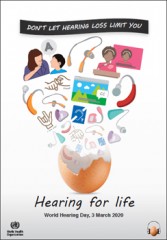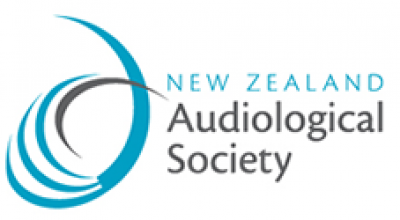Don’t let hearing loss limit you. Hearing for life!
On World Hearing Day 2020, the New Zealand Audiological Society would like to address the importance of hearing loss prevention and early intervention. The World Health Organisation (WHO) World Hearing Day global message of ‘Don’t let hearing loss limit you. Hearing for Life' is a reminder of the importance of maintaining good hearing health and preventing hearing loss in the first instance.
Hearing loss may result from genetic causes, complications at birth, certain infectious diseases, chronic ear infections, the use of some types of drugs, exposure to excessive noise and ageing. While some types of hearing loss may not be preventable, there is a significant opportunity for people to maintain and improve their hearing health care by being aware of possible risks and taking measures to prevent or minimise damage to their hearing.
Noise induced hearing loss is a major concern in some industries and may affect up to 100,000 New Zealanders. Workers exposed to hazardous noise over a long period of time may cause damage to the hairs or nerve cells in the inner ear causing hearing loss. The WHO states that the highest safe exposure level is 85 dB for up to a maximum of 8 hours. The permissible time for safe listening decreases as sound levels increase. This means the safe level of exposure to a sound level of 100 dB – the level produced by a motorcycle or a lawnmower – is only 15 minutes a day. WorkSafe New Zealand has a range of helpful resources on their website for employers and employees working in noisy environments.
Another area of concern is non-occupational noise induced hearing loss from the use of personal audio systems and devices at high volumes for extended periods of time. The WHO estimates that at least a billion people aged between 12 and 35 years are at risk of hearing loss due to such preventable causes. WHO, in conjunction with the International Telecommunications Union (ITU), have developed a set of global standards aimed at preventing hearing loss due to harmful listening practices. In New Zealand the National Foundation for Deaf and Hard of Hearing are conducting a pilot programme of auditory screening in a number of high schools to raise awareness and monitor youth hearing loss rates.
A greater awareness of the potential risks to our hearing is particularly important when considering the economic and social costs of hearing loss. Hearing loss can have significant impact on daily life and is associated with negative health and social indicators such as reduced mental wellbeing, social isolation and cognitive decline, particularly for older people. For those who have hearing loss, appropriate and timely interventions can facilitate access to education, employment and communication.
This World Hearing Day, the New Zealand Audiological Society encourages you to remember your hearing is precious and is an important part of your overall health and well-being. Take steps to manage any risks and encourage friends and family to also consider any risks to their hearing. To support good hearing for life - prevention is always better than cure.
If you think you or a family member is experiencing hearing loss, consult a NZAS audiologist or audiometrist. At all life stages communication and good hearing health connect us to each other, our communities and the world.
Libby Gibbins
President NZAS.

